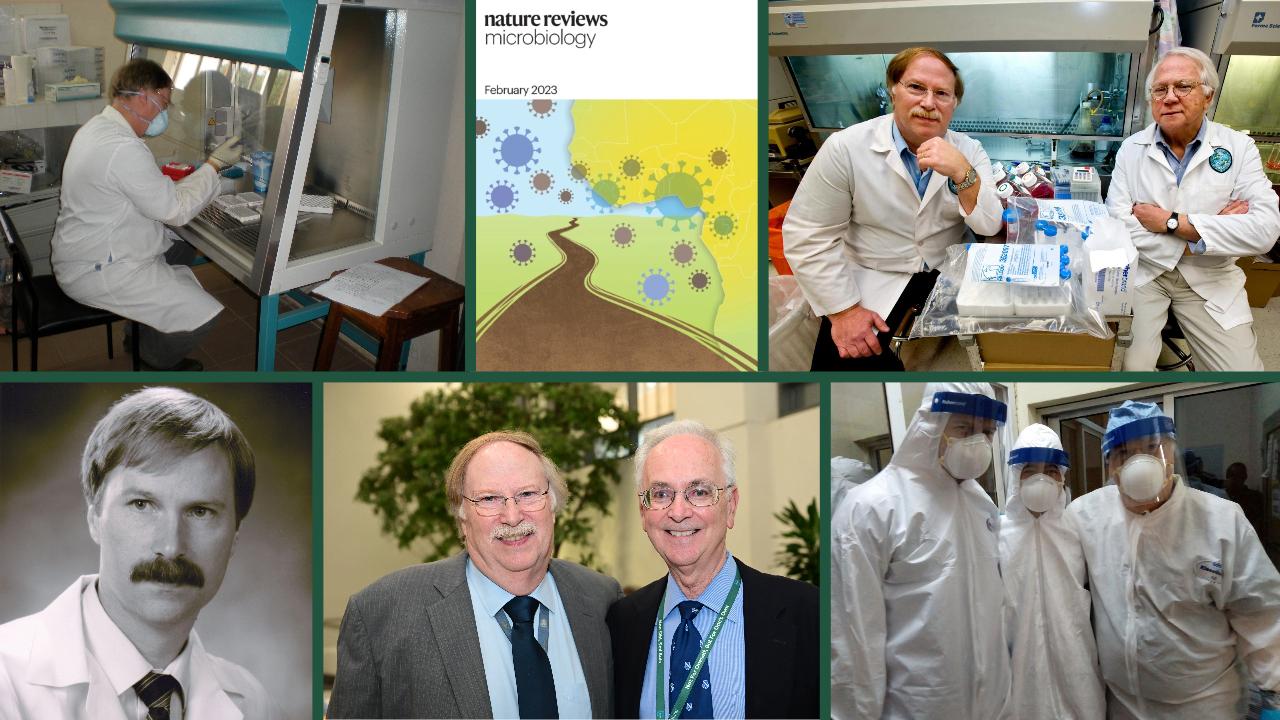Distinguished virologist Robert Garry marks 40 years at Tulane
The year was 1983, and science was under attack. The budgets for the National Institutes of Health and other science agencies had been slashed, and universities were cutting back on faculty. Robert Garry, PhD, a postdoctoral researcher in virology, needed a job, and a position at Tulane University School of Medicine seemed most promising.
Garry and his wife found New Orleans the right place to raise a family and Tulane the right place to expand research into infectious diseases. Now a world-renowned expert in virology, Garry celebrated his 40th anniversary at Tulane this year.
“I've had offers from the industry, but I’ve never seen the advantage of going some other place,” said Garry. “Tulane is a relatively small school, but we have a lot of different assets here, from the National Primate Research Center to the School of Public Health and Tropical Medicine. There are resources here that are unique, and there’s an emphasis on infectious disease research. I also really enjoy working with the students.”
Garry spent the first part of his career studying HIV, then moved into emerging disease research in 2001. He worked with other Tulane scientists to develop a Lassa fever program in West Africa and now manages a consortium of researchers who are developing countermeasures - including diagnostics, immunotherapeutics, and vaccines - against diseases including Lassa virus, Ebola and Marburg viruses and other high-consequence pathogens. He’s published more than 250 papers on retrovirology, with cover stories in top journals, including Nature and Science.
In late 2019 a new threat emerged, and Garry quickly became a preeminent expert on COVID-19. As the world grappled with the pandemic, science was again under attack.
“It’s kind of like attacking the messenger,” said Garry. “We need virologists to do their work because there may be a SARS 3 or SARS 4. We’re actually looking at some of these respiratory viruses in West Africa. I hope we’ll figure out why sub-Saharan Africa wasn’t hit very hard with the COVID-19 pandemic. We believe they had some pre-existing immunity to coronaviruses, so we’re trying to find the virus.”
Garry is also working with Tulane virologist James Robinson, MD, on a vaccine for Lassa fever that could move into clinical trials by 2025. He has no plans to retire anytime soon.
“As long as all the facilities work and I don’t feel like I’m slowing down, I’ll keep going as long as I can,” said Garry. “I wouldn’t want to be doing anything else.”

